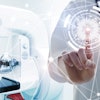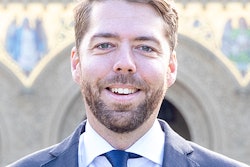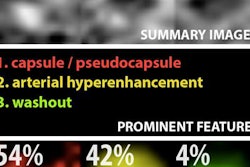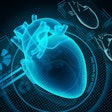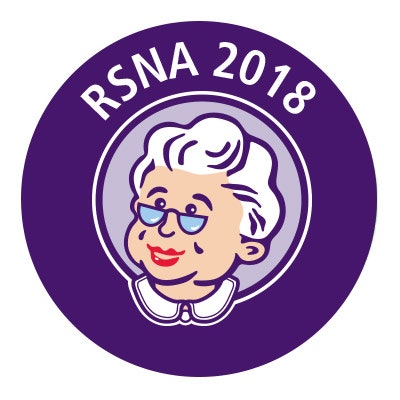
CHICAGO - While the majority of medical students in Germany are aware of the discussion of artificial intelligence (AI) in radiology, most are unafraid of being replaced by AI and are optimistic that it will improve radiology as well as medicine in general, according to research presented on Thursday at the RSNA 2018 meeting.
Researchers from the University of Cologne surveyed medical students in Germany and found that more than 80% were confident that AI would not replace radiologists in the foreseeable future.
"Contrary to what has been talked about in various conferences, where people talk about being approached by students who are hesitant to choose radiology as a specialty, in our study populations, at least, we found that although students are very aware that AI is being discussed in the context of radiology, they do not fear replacement and they don't really think that choosing radiology will be an ... ending for their professional career," said presenter Dr. Daniel Pinto dos Santos.
The potential impact of AI in radiology has generated much debate both outside and inside the specialty. For example, prominent figures in AI such as Google's Geoff Hinton have suggested there will be no more need for radiologists within five years and the training of radiologists should end. Earlier this year, a survey of Canadian medical students found that some were choosing not to pursue radiology as a specialty due to concerns over the possible effects of AI.
To investigate how current medical students in Germany feel about AI in radiology and medicine, the researchers developed a questionnaire that covered topics such as demographics, self-assessment, the potential applications of AI in radiology, and attitude toward AI in radiology as well as medicine in general. They emailed a link to the SurveyMonkey survey to students at three major medical schools in Germany.
Of the 263 respondents, 163 were women and 93 were men. Their median age was 23 years. When asked whether they consider themselves to be tech-savvy, 60 (22.8%) agreed entirely, 106 (40.3%) rather agreed, 77 (29.3%) rather disagreed, and 17 (6.5%) disagreed entirely.
While the majority (52.5%) indicated they were aware that AI is being broadly discussed in the radiological community, most (68.1%) reported that they personally don't have an understanding of the technologies used in these topics, Pinto dos Santos said. When asked to rate potential applications for AI in radiology, respondents had the highest level of agreement on the potential for AI to perform automated pathology detection on imaging exams:
- Automated detection of pathologies in imaging exams: 220/263 (83.7%)
- Automated indication of appropriate imaging exams: 149/263 (56.7%)
- Automated diagnosis in imaging exams: 111/263 (42.2%)
In addition, 77.2% of respondents were convinced that AI will revolutionize radiology, while 73% were convinced that AI will revolutionize medicine in general. Also, 82.9% were confident that radiologists will not be replaced in the foreseeable future, and 96.9% were confident that physicians will not be replaced in the foreseeable future.
"They were, in general, not fearful of [AI] in medicine and radiology," Pinto dos Santos said.
Finally, 70.1% agreed that AI needs to be included in medical training. Delving further into the responses, the researchers found that tech-savvy and male students, in general, were more confident about the impact of AI, were less concerned, and were more interested in AI being integrated into medical training.
"Radiology should really take the lead in educating students about these topics," Pinto dos Santos concluded. "Radiology is, and will probably remain, a very interesting specialty for students to choose."

